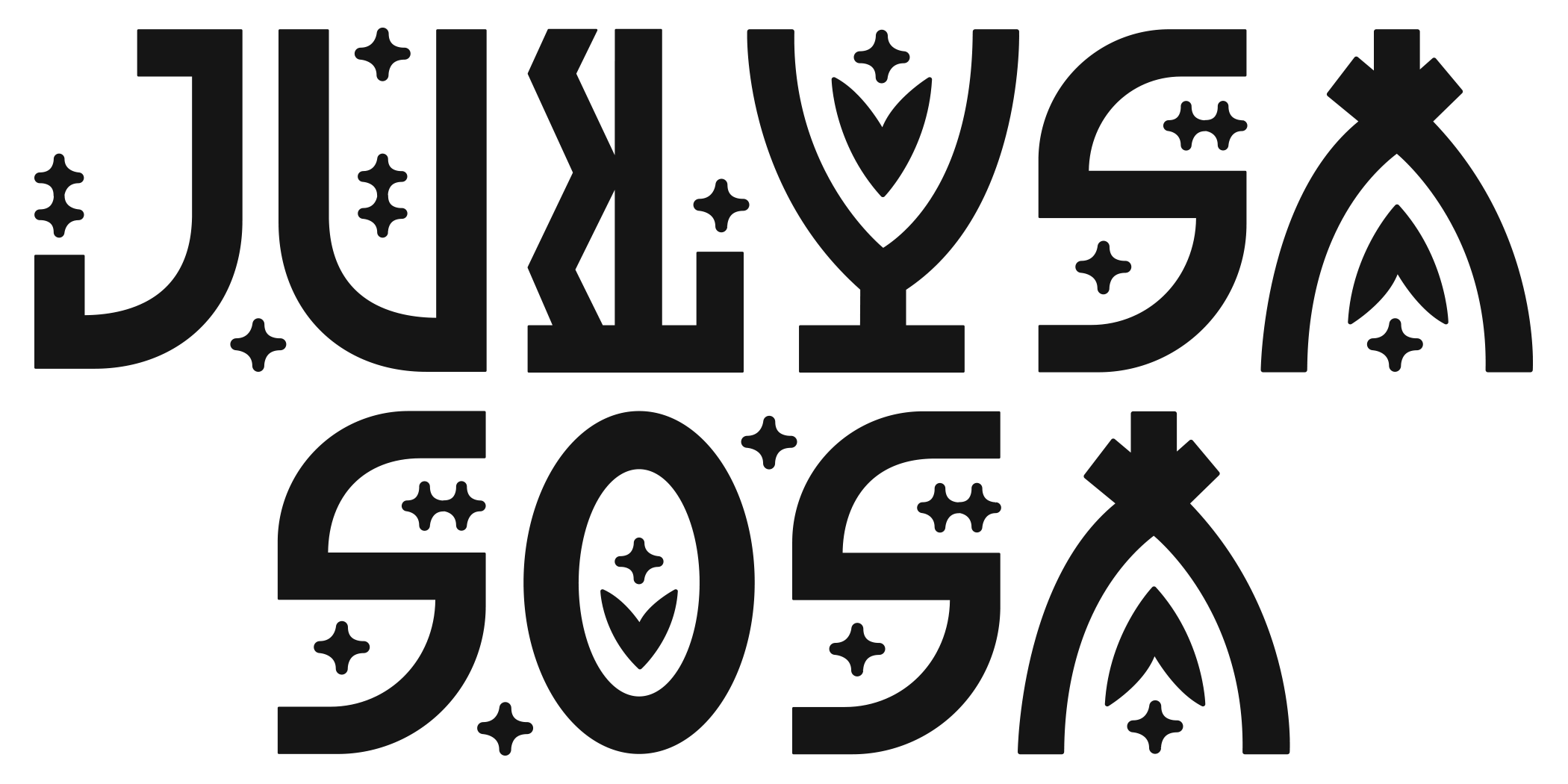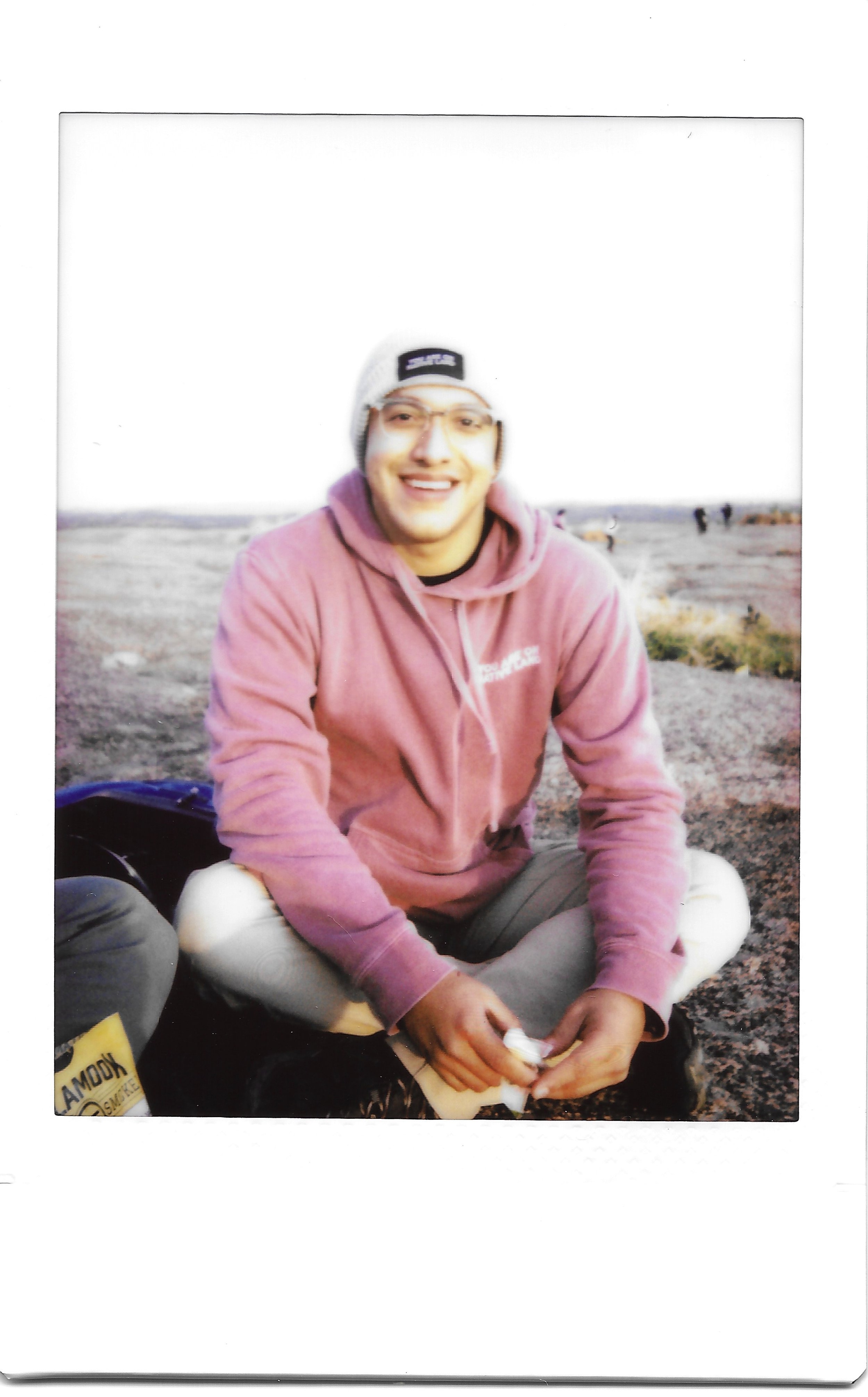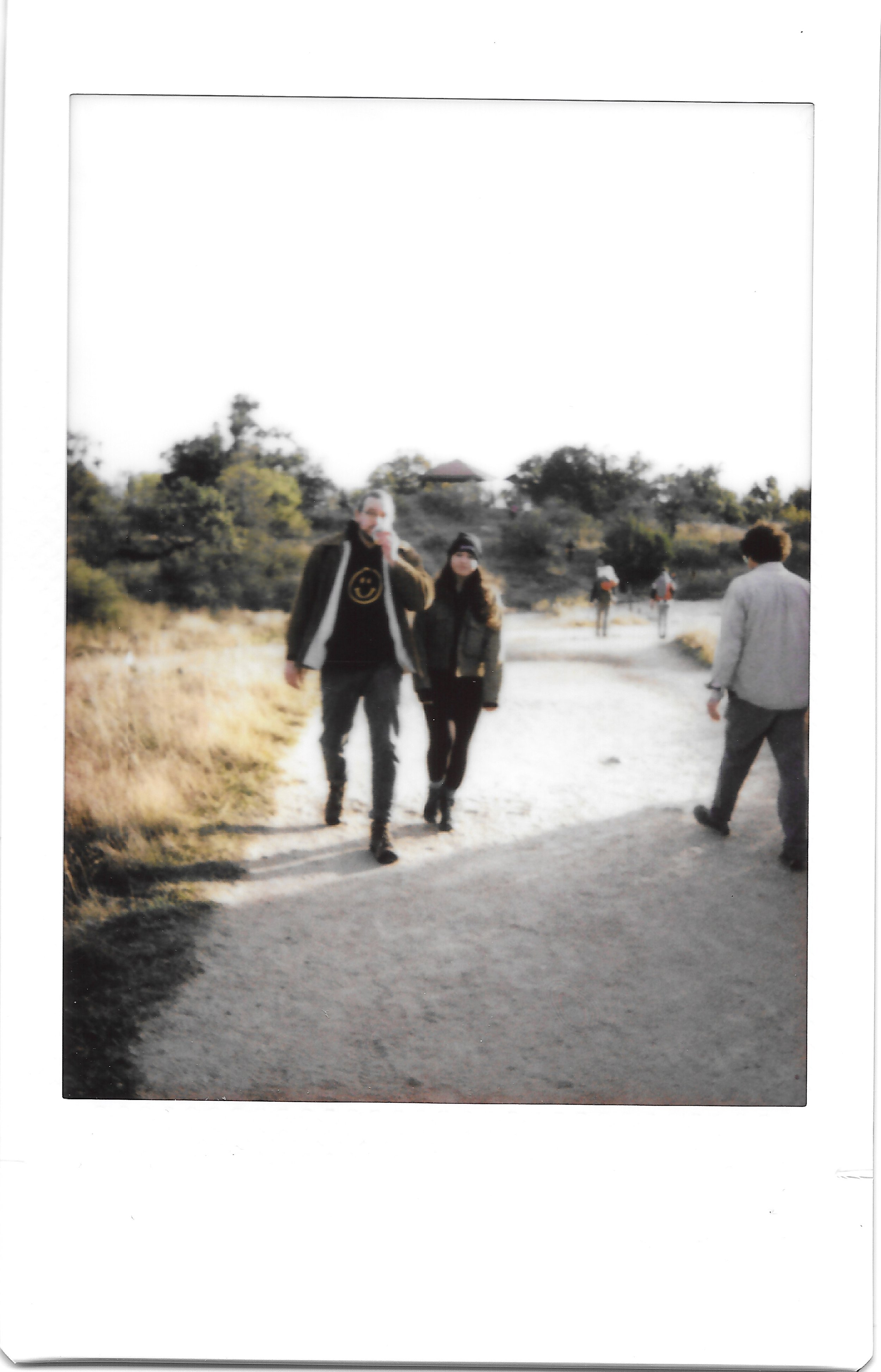What Happens When You Ask the Uncomfortable: What I Learned from People's Reactions
Despite a shadowban, my recent Instagram post sparked discussions. I addressed the contradiction of denouncing one genocide while celebrating another.
The question, 'Is it too soon to criticize genocide while enjoying a celebratory dinner?' resonated in my social media world, breaking my small internet.
Decolonizing Thanksgiving: Our Personal Stand
In our commitment to decolonization, we've opted out of ‘Thanksgiving’ for years. The year I found out that the myth was a violent holiday that celebrated genocide and the erasure of Native history, I did a full stop. I started by asking my family why we even participated. They shared that it was because we were being raised “American” and wanted to make sure we assimilated to the traditions of this country, and also, it was just another excuse for our massive family to gather.
I then asked them to describe ‘Thanksgiving’ to me. They repeated the story we all know. I then shared the actual history of ‘Thanksgiving.’ I also shared how I felt disturbed to be a direct descendant of an ancestor who survived genocide and be participating in a dinner that celebrates that same genocide. Not only did I feel disturbed, but it actually made me physiologically sick to my stomach to think about it. I shared that I would no longer partake in it. My parents understood but were saddened because, to them, it meant I would be absent at any family ‘Thanksgiving’ gathering. But I was committed.
They have tried to reassure me that they don’t actually care about the origins and history of the holiday and it's more about just gathering with family. I believe it; they are not from this country, so their tie isn’t strong to the holiday beyond family. But for me, it is beyond family. It’s so far beyond that it’s ancestral memory activating trauma in my body. And I had to realize that I could not control their actions like I could not control mine. So I did what was in my control and opted out.
Rather than taking part in a celebration rooted in historical trauma, we choose to observe this day as The National Day of Mourning. We spend the day outdoors, connecting with the ancestors, Tonantzin (earth mother), praying for the Wampanoag and their descendants, Native relatives both human and non-human, and making offerings. It’s a time for deep reflection as we mourn the lives, lands, and animals that have been subjected to genocide due to colonization. We contemplate how we can continue to be good hosts on this sacred land.
I share my frustrations about this "holiday," along with educational resources every year. But this year, it took on deeper meaning. I do not shy away from vocalizing my dislike for the holiday. But my original question was posed after witnessing more than a month-long genocide in Palestine. The grief and trauma activated in me was overwhelming. Mentally, emotionally, physically, I have struggled to process. I feel rage and wounded. Despite those feelings, I felt an unbreakable sense of hope and love because the activation of the masses in response to this genocide had felt unprecedented. The complexities of colonization were being dissected quickly and easily. For the first time ever, it seemed like the masses were not only understanding the spectrum of violence, ranging from occupation to genocide, of the settler colonial state but could also name it.
So I started to reflect and wonder if what they advocate and dream for Palestine, they also dream and want for Turtle Island? I started to wonder how many of the people actively denouncing and protesting against this genocide would still be sitting down to a ‘Thanksgiving’ dinner. This thought wounded me. So I wrote down the question in my notes app, and later posted it to my feed.
This post has attracted the most attention and engagement I have ever received on anything of mine. And if I’m being honest, I was getting remarkably low engagement due to being shadowbanned. So I thought maybe only the ~20 people who had been liking my posts would see it. But it quickly took off; folks continued to engage, repost, and tag me.
Three Camps of Thought: Analyzing Responses
Analyzing the engagement from my post uncovered clear trends, providing insight into three general camps of thought:
1. The 'Gworls That Get It, GET IT': Understanding the Assignment
A significant portion of the audience understood the assignment, recognizing not only the conflict but also the parallels of condemning one genocide while participating in the celebration of another. They demonstrated empathy, understanding, and validation. Many in this first camp had already abandoned participation, educated themselves, and listened to Indigenous communities, acknowledging this day as a Day of Mourning. Surprisingly, some had never participated altogether. This group also encompassed people from so-called Canada and Australia echoing the same sentiment. They held their convictions and demanded no further context or labor from me. They shared, reposted, and commented in solidarity.
“I don’t think the people are ready for this kind of truth…”
“...I have always found Thanksgiving to be weird and don’t celebrate it.”
“Its observed as a national day of mourning in our house”
2. Defensive Dissonance: Confronting Uncomfortable Realities
The second and more vocal camp was this group. Responses ranged from disapproving, understanding but dissatisfied with the delivery, defensive, and blatantly pressed. It seemed like this group could recognize the atrocity of one genocide but could not abandon their comfort to condemn the genocide tied to ‘Thanksgiving.’
This group demanded additional context, a softening of language, policing of tone, and dismissiveness. They accused the question of lacking nuance, understanding, love, or empathy. They deemed the question divisive and harmful to "the cause." They attempted to invalidate the question and, in turn, turned the shame back at the person posing the question (i.e., me). Many also expressed fatigue over having to "give one more thing up" and annoyance over not being able to "eat their turkey in peace” with their family.
They also showcased a justification and moral superiority over the ‘traditional’ celebration, proudly describing their version of ‘Thanksgiving’ and seeming to believe it was the most progressive and honorable. They mentioned doing land acknowledgments before dinner, changing the name to something else, and slight modifications but could not abandon the tradition on that day. There was no mention of the Day of Mourning with this crowd.
Why is this rhetoric harmful? It’s because the settler colonial holiday of ‘Thanksgiving’ remains upheld when it should be dismantled. This group demonstrated performative behaviors that optically appear as progressive but are, in fact, semantics to the settler colonial state. This group demands comfort in their upholding, irritated by being posed such an uncomfortable question, and cognitive dissonance protects them from opening the discomfort into self-reflection. This camp of thought demanded more labor from me, dragged me, and projected the most onto me.
“Thanksgiving isn’t celebrating genocide”
“We eat salmon and root vegetables. And we recognize the stolen land we occupy”
”I understand the sentiment here, but shame is never an effective teacher”
“This is such a bullshit statement…you are asking people to take away from the world issue happening right now in our time…We can end this genocide now. And you are shaming people for Turkey.”
Also, there's something to be said about the Palestinians and Palestinian-Americans who have commented, reposted, and reached out. Their contribution has been unwavering solidarity. My question was not actually directed towards them; I know they get it. Even so, they answered the call to action. Not only did they agree, but they could also see the parallels and hold space for both conversations. While the second camp accused me of being divisive, the people and their families who were directly affected by the genocide saw it as a necessary conversation because we both understood that these struggles are intertwined. I find that interesting, don't you?
Me after my most recent post has ppl throwing up, crying, punching the air, trying to defend why their 'Thanksgiving' is morally more superior than everyone else's
3. Awakening to Cognitive Dissonance: A Shift in Perspective
The final camp was one of the most striking moments. Unaware of the inconsistencies in their actions, the third crowd began openly discussing their internal conflicts, abandoning the comfort of ‘Thanksgiving’ and diving into self-reflection. This crowd committed to educating themselves further, taking accountability for their participation, and opting out of ‘Thanksgiving’ altogether. I will protect this group at all costs. They were vulnerable enough to face the mirror and abandon their role in upholding the settler colonial state through the ‘Thanksgiving’ myth. This group was okay with sitting with their discomfort. They did not demand additional labor or context from me, and they also did not attempt to soften my language or police my tone or delivery in any way. Instead, they expressed gratitude. This is true solidarity beyond performative gestures.
“Never again.”
“...Thank you for the call out…Sometimes, you’re too close to see it.”
“We are boycotting Thanksgiving.”
Systemic Barriers and The Normalization of Genocide: Thanksgiving's False Facade
Understanding the situation, I realize that many marginalized and working-class communities might not get paid time off, and sometimes circumstances force us to make lemonade out of lemons. While questioning the norm, it's crucial to see the systemic colonial barriers that limit choices and uphold harmful traditions. Why not redirect the frustration instead towards the settler colonial state, the same one that bred capitalism, which exploits you and your labor as well? The one that aims to sever you from the land, your communities, and time?
It's important to emphasize that the sentiments expressed in my post are not isolated; many Indigenous communities view ‘Thanksgiving’ as a day of mourning. The holiday's origins are tied to celebrating the genocide of the Indigenous peoples of Turtle Island. Society continues to normalize this genocide, presenting the myth of ‘Thanksgiving’ as a day of gratitude, family, and thanks, even in 2023.
Beyond Comfort: The Impact of Uncomfortable Questions
To summarize, despite facing shaming and scoffing, I don't feel discomfort or shame for posing the question. I said what I said and still stand by it. Either you got it, you now get it, or you don’t want to get it. But true solidarity requires abandoning the comforts of white supremacy. Genuine solidarity is action with the oppressed. Choosing to ignore the outcry from these communities is upholding the settler colonial state and the white supremacy it is founded on. That is an uncomfortable and shameful truth for someone who wants to appear as an ally optically.
I stand by my question without shame, but for those who pointed fingers at me and projected their shame onto me, I hope my question seeps into your consciousness. May it linger in your quiet moments, with every bite, persisting even after you've returned home from your 'Thanksgiving/Friendsgiving’ dinner. May it weigh on you so much that you seek the truth and confront the colonizer in your mind and abandon it, for liberation awaits, and delaying the timeline serves no one.
If you are reading this and have chosen or feel obligated to participage in this genocidal holiday, here are some questions you can ask yourself/your family:
How does your participation in 'Thanksgiving' align with your values?
Are you willing to confront uncomfortable truths about the historical origins of the holiday?
Why is it considered as a day of mourning to Native communities?
Is there a capacity to shift your mindset from ‘Thanksgiving’ to a Day of Mourning?
Can you, together as a family, create a new tradition?
Who’s land are you on?
Are there any holidays you can reclaim in your culture that you, as a family, can commit to gathering and celebrating together any other day during the year?
Can you explore alternative ways to express gratitude and togetherness that don't perpetuate harm?
What steps can your family take to foster a deeper understanding of Indigenous cultures and histories?
How might you actively contribute to reconciliation efforts in your community beyond land acknowledgement?
What role can education play in reshaping your perspective on holidays and cultural celebrations?
The Indigenous Anarchist has created a phenomenal website dedicated to this topic and has made it a free resource for all to learn. Consider donating to their PayPal or Venmo today.
Move beyond land acknowledgement and consider paying a voluntary land tax back to Indigenous tribes/communities. Start with identifying whose land you are on.





